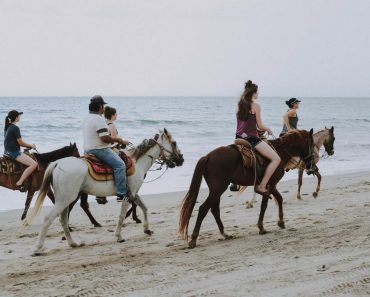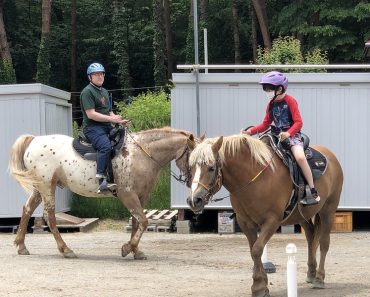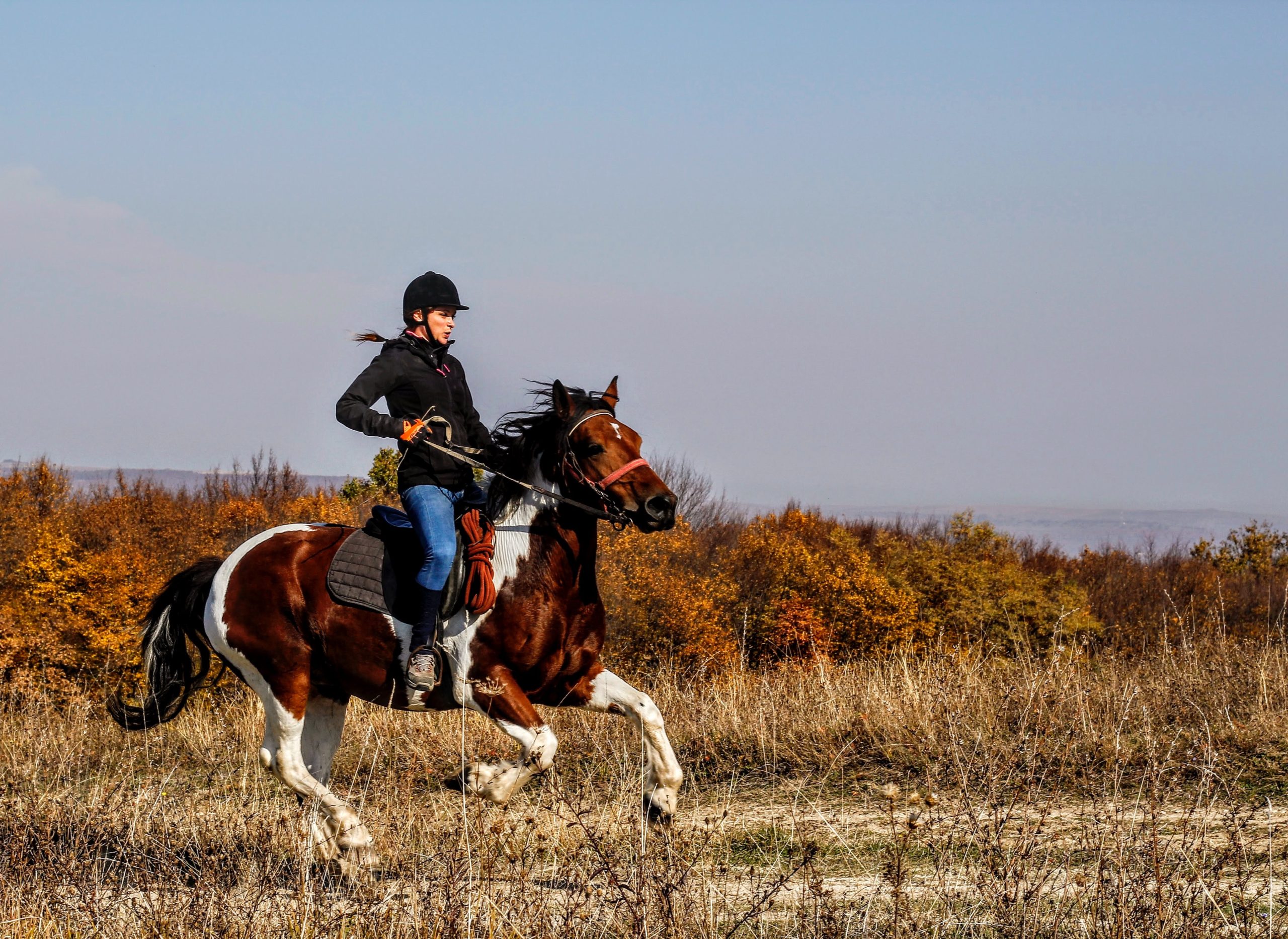Scenery and historical interest are important in rating a horseback riding vacation.
A horseback riding vacation can be a joy or a disaster. It can be comparatively safe or extremely dangerous. It is a wonderful way to practise a sport you love and travel in depth. Horses are great icebreakers with strangers and you will be welcomed far more warmly than if you came on a bus. We have developed some ideas which can help you choose the vacation which is the most appropriate for you.
Keep in mind that no ride, no horse and no person can be perfect. Nothing will protect you always from the dust of the trail, tired muscles, faulty plumbing, etc. To enjoy any trip to the fullest one must accentuate the positive. Complaining makes everyone unhappy and usually accomplishes nothing.
Here Are the Main Criteria We Use in Choosing the Best Rides:
Skill Level
It is most important to be sure you will be happy with the pace of the ride. Is it fast enough to be challenging and interesting for you? Have you the necessary experience, training and fitness to do it safely and enjoyably? It is difficult to tell from a description of what a ride is really like. We use a grading of Beginner to Advanced for rating the skill levels required for each category. Riding skill is not the only factor because for some rides considerable physical endurance is needed and for others, one may have to get off and lead the horse up or down hills in difficult terrain.
Intermediate riders must be careful not to try a ride the first time which is too difficult as they may be frightened or hold up the rest of the group. More advanced riders should be sure that the ride will be paced fast enough for their taste. It is of vital importance that great care is taken by the organizer of the trip to be sure that all participants have the required riding skills to handle the ride. Many trips have been badly impaired by participants who slowed the other riders.
Ride Leaders
The leader of the ride can make or break it. He or she needs to be an excellent rider, to know the horses well, to do the best possible job in matching horse and rider, to be attentive to the group, to be familiar with the route, to be well informed about the local culture, flora and fauna, and to impart that knowledge. The leader needs to have the courage to take people off the ride if their skill is not up to the required standard or the tour can be ruined for everyone. The leader is your main contact with the local people, especially in a country where you do not speak the language fluently.
Horses and Tack
The horses must be in good condition and obedient. They must be capable of handling the itinerary planned. There should be mounts for backup available in case a horse goes lame or is inappropriate for a rider. They need to have comfortable gaits and be reasonably free of bad habits. They should be accustomed to the normal hazards of the route so that they do not shy suddenly. Bridles and bits should be appropriate for the horses, and the saddles should fit properly. Saddles should be comfortable for riders.
Weather
Weather is certainly a factor important to most riders. There are no absolute guarantees about the weather, but your chances of finding the conditions you want are far better in some places than in others. If you don’t like the rain and mud, your chances of avoiding it will be better if you visit any of the weather forecast websites and check the expected weather conditions of the place you intend to visit, well in advance.
Terrain
The terrain can certainly affect the pace of the ride and the enjoyment of the riders. Are the trails too rocky most of the time to allow a good gallop now and then? Is it a considerable part of the ride along paved roads? How attractive is the landscape? How steep are the hills? Must large towns be traversed?
Culture
Most of us want to experience to the fullest the cultural aspects of the places where we are travelling. Does the ride give one a chance to come in close contact with the country? Are there opportunities to visit spots of cultural interest like castles, medieval villages or temples? Will there be local music and dancing? What are the chances for mingling with the natives? What is there of particular interest on the route?
Cuisine and Drink
Are you prepared to test exotic dishes? Do you care about local wines or other drinks and if so, what is available. If you have dietary restrictions, will they be accommodated? How good is the food and how safe is it for non-native stomachs?
Lodging
Lodging can vary from a rough camp on a pack trip to a well-equipped camp. It can be in palaces, chateaux, small village inns or upscale hotels. Do you want the exotic charm of a palace or is it more important to be sure there are unsuited facilities and plenty of hot water? How much do you care?
Safety
Safety is of vital importance but keep in mind that nothing you do is completely safe. Nevertheless, risks can be greatly reduced. For starters, we strongly recommend that you wear a hard hat at all times when riding. Finding a ride that goes at a pace suitable to your skill level and being mounted on a horse that is appropriate for your ability are key factors.
How careful is the ride leader about this and how much effort do they put into finding out about the ability of the riders beforehand? What can be done in case there is an accident? Does the ride leader have a cell phone or a radio? How long will it take to get medical help? Does the ride leader have medical training? Are the horses well trained and mature? Do they have confirmed bad habits like kicking and bucking? Are riders informed about their idiosyncrasies? Does the ride leader make clear what procedures should be followed and does he see that the guests observe the rules? The choice is yours, but you need to be informed.



